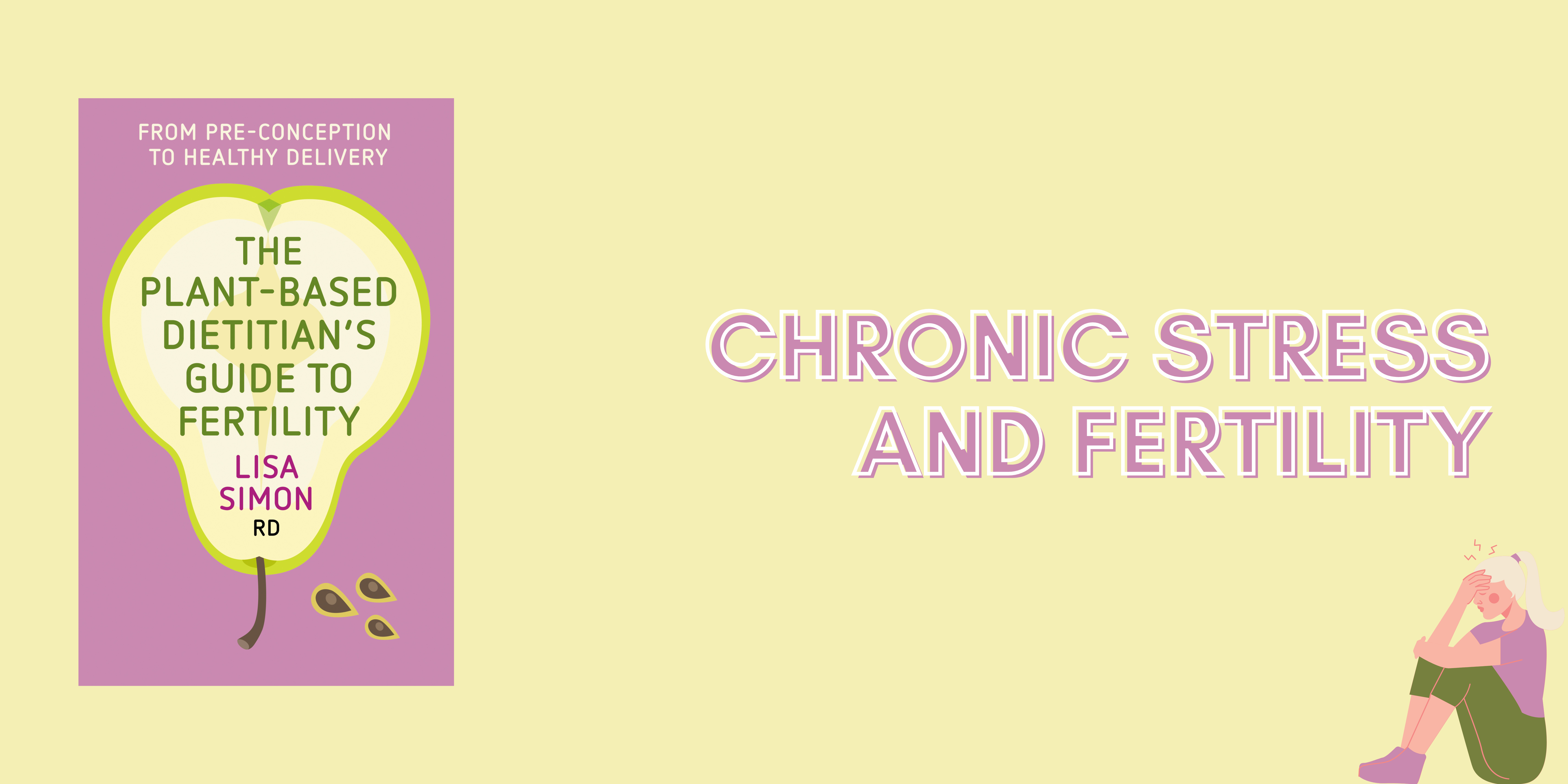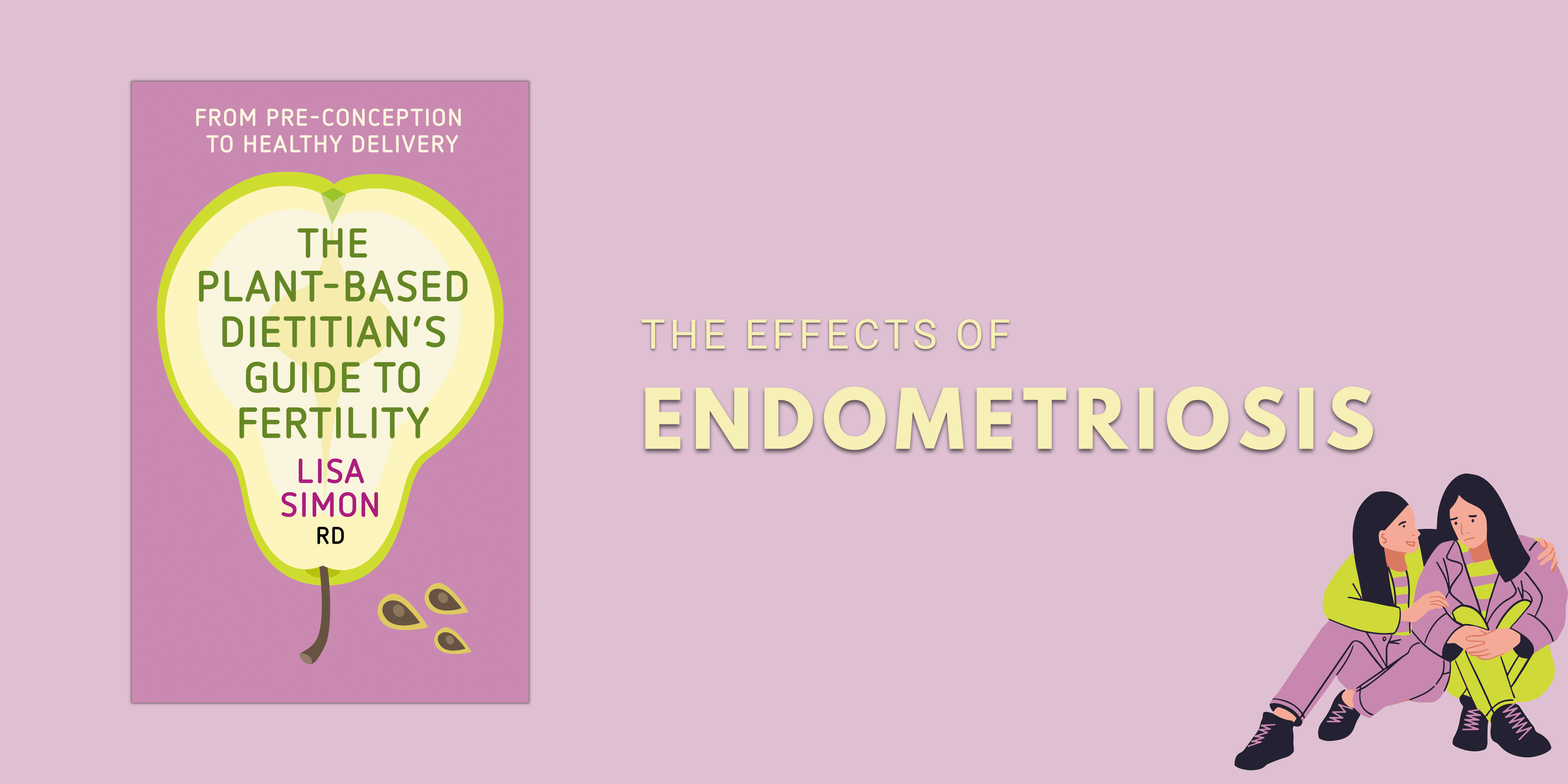
The following is an extract from ‘The Plant-Based Dietitian’s Guide to Fertility’ by Lisa Simon RD and looks at the effects stress can have on fertility. The book will be available for purchase on Hammersmith Health Books and other online vendors this month.
I cannot emphasise enough how significant an effect chronic stress can have on your health. I would go so far as to say that it is at a level playing field with nutrition and, if it isn’t addressed, quite simply you will not improve your health.
Your body’s response to stress is instant and starts in your brain. It begins a series of interactions between the hypothalamus, pituitary and adrenal glands. This results in the release of adrenaline and cortisol, two of the ‘stress hormones’, from the adrenal glands. Once the stress has passed, your cortisol and adrenaline levels reduce back down. This step is really important as the communication between the glands in your brain and the adrenal glands above your kidneys also influences the production of sex hormones. If the stress doesn’t pass, the stress response doesn’t stop and this results in disruptions to your reproductive hormones. It is because of this that chronic stress may lead to poorer sperm quality and infertility in both men and women.
The effects of chronic stress on fertility
So, the effects of chronic stress on general health but also on fertility can be significant, and sometimes it feels like a bit of a vicious circle. Struggling to conceive is stressful, going through fertility treatment is stressful, and worrying about the effects of stress is stressful! Add that to general life stressors like work, relationships, social pressures, financial strains etc, and you can see how present stress is daily, even if you are not always aware of it. This is when the effects of such stress can start to become apparent in your state of health and affect your fertility, and this is why it is so important for both your mental and physical wellbeing to have in place some great stress management techniques. In terms of fertility treatment, data show that men report feeling stressed providing sperm samples on the day of egg retrieval, and this may negatively affect overall semen quality, with effects on sperm concentration and motility. However, it is difficult to say whether stress results in reduced semen quality, or whether it is a consequence of decreased semen quality.
Being diagnosed with infertility, frequent medical appointment, and failed IVF treatment are all very stressful events. It isn’t just the stress itself though that can affect sperm quality; how you respond to stress may also play a part. Responding by being assertive or confrontational may negatively affect fertility by increasing adrenaline production which then results in the blood vessels in the testicles tightening. This reduces testosterone production and the making of new sperm, so for men, stress management techniques are just as important as for women.
As stress causes an increase in cortisol and subsequent suppression of sex hormones, this can lead to a decreased sex drive and can also lead to undesired weight gain. Whereas acute stress is more likely to result in a reduced appetite, chronic stress is more likely to decrease behavioural control and increases impulsive behaviour. An estimated 35-40% of those experiencing stress increase their food intake. The types of food likely to be chosen are foods high in sugar and/or fat, with low-energy, high-nutrient foods, particularly fruit and vegetables, decreasing. This may then lead to overeating, which in turn can lead to weight gain and potentially increase feelings of anxiety and depression. Conversely, some experiencing chronic stress may decrease their food intake, leading to weight loss, with potential adverse effects on their mood, energy, concentration and, for women, their menstrual cycle.
Managing Chronic Stress
Managing stress is the third pillar of lifestyle medicine and essential to improving your chances of conceiving a healthy baby. In terms of techniques for doing so, everyone is different, and what might work for one person may not necessarily work for the next. For example, I’ve had patients telling me that meditation is their idea of ‘hell’, but then when I explore further, I find their concept of meditation is sitting on a yoga mat, cross legged, with both hands raised, fingers touching, while gently humming. This stereotypical image does not reflect the broad spectrum of meditation and is very different to most people’s practice.
Note from the author: In my new book, The Plant-Based Dietitian’s Guide to Fertility, I recommend the following from which you can pick and mix what is right for YOU. Please do see the book for the full information:
- Guided meditation
- Controlled breathing
- Positive visualisation
- Laughter therapy (yes! You heard right)
My experience of managing stress after embryo transfer
I can’t say that I didn’t worry at all during the two week wait after embryo transfer as I think some degree of anxiety is inevitable when you are pinning so much on something working, but every time I felt as though my anxiety was starting to get too high, I would apply some or all of the stress management techniques I describe in the book to bring it down.
Another thing I would highly recommend, if it is possible for you after embryo transfer, is to book those two weeks off work, or at least the first week. You want to remain as calm and stress-free as possible during that time, not having to deal with the commute if you are not working from home; work stress is something that you just don’t need. Also, finding something to occupy your mind is crucial so you don’t spend long periods trying to second-guess whether you are pregnant. That can be really counterproductive, and please, STEP AWAY FROM GOOGLE! It can be so tempting to search the internet for ‘signs I am pregnant’ or ‘what does implantation feel like?’ but this can raise stress levels and mean that you are obsessing over the slightest little sensation. Try and spend those two weeks doing lovely things with either your friends or your partner. Go out for relaxing meals, watch a film in the cinema, organise a pamper evening, do some crafting – anything that helps you to relax and distracts you from negative thoughts.
And remember, if none of these techniques are for you, there are many other forms of stress management that can be equally as effective. These can be going for a lovely walk, or a gentle run outdoors in nature, curling up with a cuppa and your favourite book, or having a lovely warm (not hot) bubble bath. As long as you take some time out, away from your phone and other screens, and just focus on being present, you will feel much better for it.

